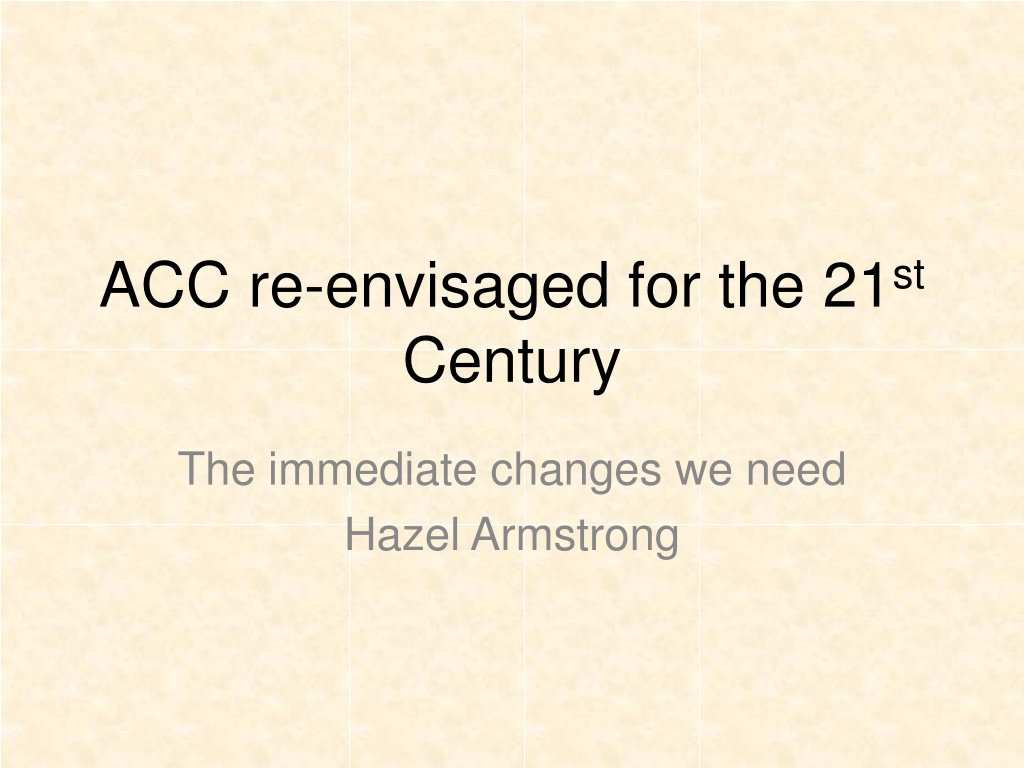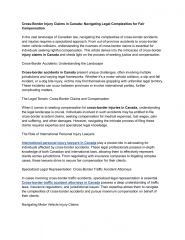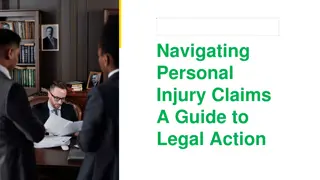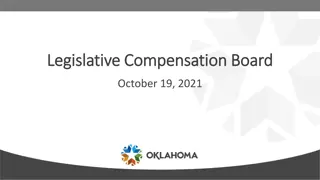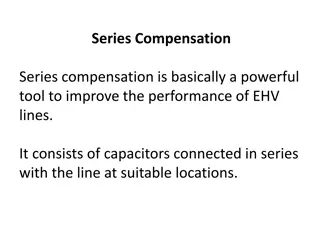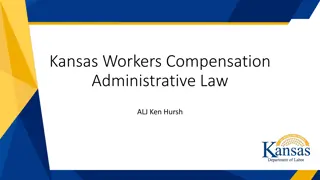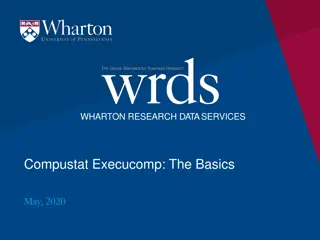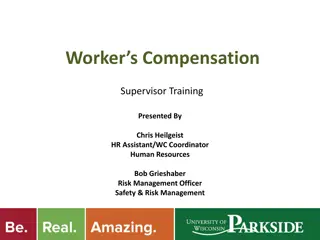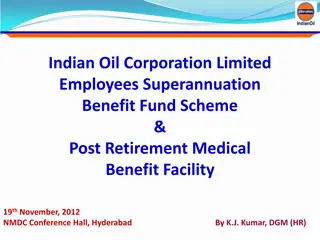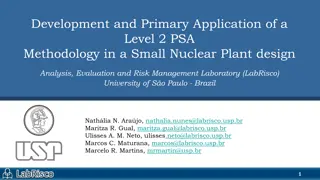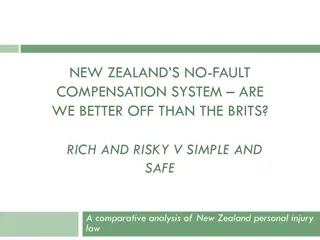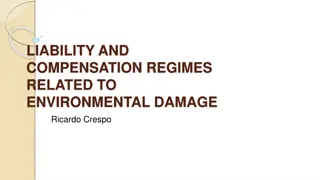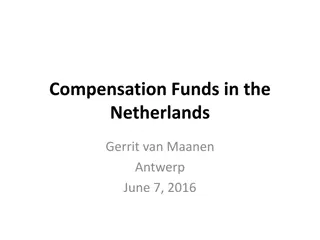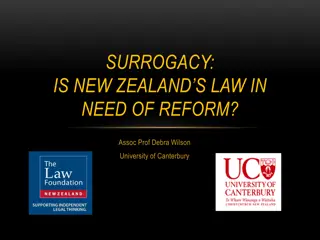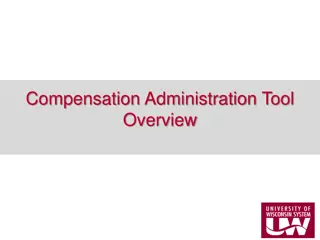Evolution of Accident Compensation Scheme in New Zealand
The evolution of the Accident Compensation Scheme in New Zealand, from the Woodhouse principles to the 21st century challenges, involving the contributions of key figures like Sir Owen Woodhouse. It explores the shift towards a comprehensive no-fault scheme and the impacts of neoliberalism on the scheme. The political and legislative developments, such as the 1999 election and the 2001 Accident Compensation Act, have shaped the present state of the scheme in aligning with the original principles of community responsibility and complete rehabilitation.
Download Presentation

Please find below an Image/Link to download the presentation.
The content on the website is provided AS IS for your information and personal use only. It may not be sold, licensed, or shared on other websites without obtaining consent from the author.If you encounter any issues during the download, it is possible that the publisher has removed the file from their server.
You are allowed to download the files provided on this website for personal or commercial use, subject to the condition that they are used lawfully. All files are the property of their respective owners.
The content on the website is provided AS IS for your information and personal use only. It may not be sold, licensed, or shared on other websites without obtaining consent from the author.
E N D
Presentation Transcript
ACC re-envisaged for the 21st Century The immediate changes we need Hazel Armstrong
The Woodhouse principles The guiding principles which formed the bed rock of the accident compensation scheme The principles are commonly called the Woodhouse principles after the Chief architect of the scheme: Sir Owen Woodhouse The principles are: Community responsibility Comprehensive entitlement Complete rehabilitation Real compensation Administrative efficiency
Sir Owen Woodhouse His war time experience in the Royal Navy saw him transporting injured partisans across the Adriatic. James Caffin, in the book Partisan records: the black bearded officer s flotilla of gun boats had been doing much for the Partisan cause by protecting supply lines and chasing E boats .
The right to sue abandoned replaced with a comprehensive no fault scheme for personal injury Sir Owen returned to the law in Napier, and he became convinced of the need to abandon the right to sue for personal injury compensation. In 1966 he was asked to chair the Royal Commission on personal injury in NZ. Former Prime Minister Sir Geoffrey Palmer, for whom Woodhouse was a mentor and friend, stated that he "was a man of astonishing intelligence and wonderful humanity .
Neoliberalism The founding principles have come under huge and enduring pressure from the neo-liberal attacks of the 1980 s and 1990 s. The Woodhouse principles are not compatible with neo -liberalism Neo-liberalism is a political approach that favours free- market capitalism, deregulation, and reduction in government spending. Neoliberalism has not been purged from the scheme. In May 1998, Hon Bill Birch, Minister of Finance, announced that private insurance companies would be allowed to compete with ACC starting in July 1999.
The 1999 election ACC has been declared a "line in the sand election issue" by Accident Insurance Minister Murray McCully.
The 2001 Act Labour was elected and formed the Government. The Accident Compensation Act 2001 was passed which stated in its purpose the Act .. is to enhance the public good and reinforce the social contract represented by the first accident compensation scheme ACC was restored as the sole provider. But the spectre of privatisation lurks beneath the surface. An example of which is the accredited employer scheme. Hon Ruth Dyson became Minister for ACC from 2002-2007
A decade later- the 2009 election In 2009, ACC again became an election issue Labour loses the election. National s Hon Nick Smith becomes Minister for ACC. He appoints a new Board in 2012 Paula Rebstock is appointed, she remains on the Board for 9 years. His priority is cost control Insurance principles are reinforced. The breadth of cover is tightened The way rehabilitation is managed means It is more restrictive Less discretion is exercised Providers are contracted to deliver limited services KPIs are driving decisions about rehabilitation and about how long people remain on weekly compensation Tools such as vocational independence are used as weapons against the claimant the accredited employer scheme remains
ACC Futures is formed in 2009 ACC Futures runs a successful campaign against privatisation The next slide shows some of the issues we focused on in our campaign The insurance market was not interested and the economics did not stack up The scheme was not privatised- but the Woodhouse principles are overwhelmed by the insurance approach The aim of ACC Futures To build cross-party support for retaining the status of ACC as a publicly-owned single provider committed to the Woodhouse Principles , with a view to maintaining and improving the provision of injury prevention, treatment, rehabilitation and no fault compensation social insurance system for all New Zealanders.
Labours manifesto 2020 Labour wants to address the changes National made when last in office, which unfairly disadvantaged tens of thousands of New Zealand people (the Nick Smith 2010 changes) Labour will consider the range of conditions ACC covers and taking an evidence based approach to updating the list of chronic illnesses caused through workplace exposure to harmful environments As part of the welfare overhaul, Labour will examine inequities between support through ACC and the welfare and health systems for disabled people and people with health conditions.
The Nick Smith 2010 changes include: Imposition of a 6% threshold for hearing loss The barrier to access for cover for gradual process injuries/occupational disease claims remains the Ministerial Advisory Committee of work related gradual process/occupational disease has not been reinstated schedule of occupational diseases needs to be updated/extended Disentitlement in cases of self inflicted injuries or suicide remains Increasingly easy to have weekly compensation suspended because a claimant deemed Vocationally independent 30 hours = full time work pre incapacity earnings may be taken into account
Many other changes to ACC are required (beyond those imposed by Nick Smith in 2010) Cover Cover to be extended to mental injury caused by non work traumatic events Cover extended to non work related asbestos disease Cover should be granted when the diagnosis evolves or is clarified Cover for birthing injuries The Board Board representation should include workers, disabled persons, Maori and Pacifica. Assessors Create a larger pool of assessors - ie not limited to those appointed or approved by ACC so long as the assessor is appropriately qualified and trained. Entitlements Removal of requirement to be an earner at the time of injury and at the time of incapacity in order to be eligible for weekly compensation ie reversal of the Vandy decision Entitlement decisions must be issued within statutory time frames Change the way weekly compensation is taxed when back dated Holiday pay should not be abated against weekly compensation Lump sum Guide AMA Guide is gender biased Incapacity Definition of full time employment to be increased to 37.5 hours a week Pre injury earnings must be taken into account when making vocational independence decisions Reinstate consideration that the person can work in each and every part of pre injury employment when considering incapacity AMA Guide is outdated use most recent AMA
Access to justice Review decisions should be enforceable Review costs should be increased Removal of bar to appeal to the Supreme Court Discretion to accept late appeals in the High Court Legal aid more generous to encourage lawyers into the field of ACC
Woodhouse principles have been undermined Community responsibility Comprehensive entitlement Complete rehabilitation Real compensation Administrative efficiency ACC needs to review its practice to return us to the Woodhouse principles The legislation needs to change to properly implement the Woodhouse principles The Board has to reflect the values underpinning the Woodhouse principles Uplift is required for those with a disability
